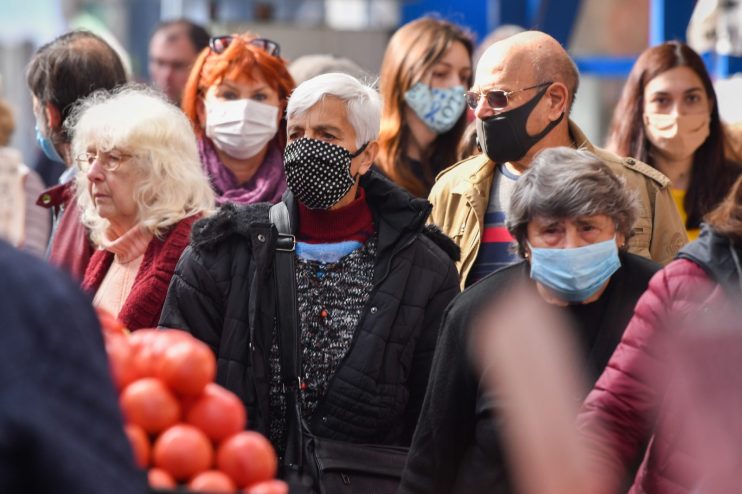People gain ‘not a lot’ from wearing face masks: Danish study

Wearing a mask does not fully protect against coronavirus, a major study has found, as pressure mounts on ministers to set out a strategy for easing lockdown restrictions across the country.
A Danish study of more than 6,000 participants published in the Annals of Internal Medicine has found that masks are only “50 per cent effective” in protecting against coronavirus.
Researchers from the University of Copenhagen conducted the study on participants from early April to early June, making sure they had tested negative for coronavirus beforehand.
“Our study gives an indication of how much you gain from wearing a mask,” said Dr. Henning Bundgaard, lead author of the study. “Not a lot.”
The conclusions come in stark contrast to research from the US Centers for Disease Control and Prevention (CDC) that alleged that wearing a mask significantly reduces the chances of contracting Covid-19.
The CDC published data last week citing a dozen studies that found even cloth masks may help protect against Covid — though most of the studies were conducted in laboratories.
The US public body last week beefed up advice for Americans to wear masks to prevent a spike in infections over the Thanksgiving season.
However, the Danish study was quick to note that its findings “should not be used to conclude that a recommendation for everyone to wear masks in the community would not be effective in reducing infections”.
Participants in the study were supplied with surgical masks and told to adhere to social distancing rules, but authors of the report noted that they could not assure other people in the community were wearing masks.
The results echoed findings from health authorities around the world that wearing a mask is more effective in preventing transmitting the virus than contracting the virus.
Researched published in June by the University of Cambridge found that homemade masks made from cotton T-shirts or dishcloths were up to 90 per cent effective at preventing transmission of the virus.
Meanwhile, the European Centre for Disease Prevention and Control (ECDC) has said that the use of face masks in public places is particularly effective in reducing the spread of infection in the community when they are worn by people who might not realise they are infected with the virus.
Nevertheless, the findings ramp up pressure for the government to seek a reasonable exit strategy from current lockdown measures.
Ministers have made mask-wearing a key component of the government’s approach to tackling coronavirus, with the public required to wear face coverings on public transport and in shops.
Scientists have warned that general mask-wearing will only cease in the UK if there is an effective vaccine or the country achieves herd immunity.
Lockdown lifting
Boris Johnson has vowed not to extend England’s month-long lockdown beyond its 2 December expiry date, despite the fact that the virus is still spreading exponentially across the country.
The Prime Minister has repeatedly promised England will return to the “regional tiered approach” after its month-long national lockdown, warning that lower tiers may see restrictions tightened in a bid to curb rising infection numbers.
But the UK’s top scientific advisers today threw cold water on hopes for a return to Tier 1 restrictions, under which household mixing is still allowed.
“Hopefully the government will make the decision that will allow us to have some mixing, but we will wait and see what that is,” said Dr Susan Hopkins, chief medical adviser to NHS Test and Trace.